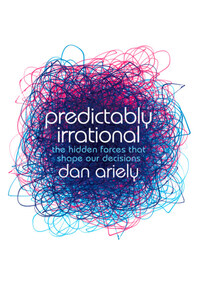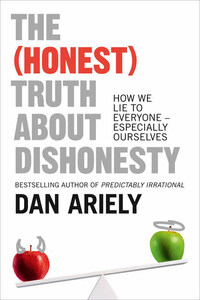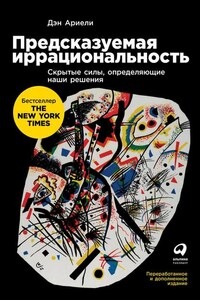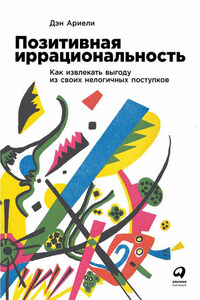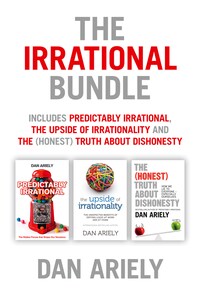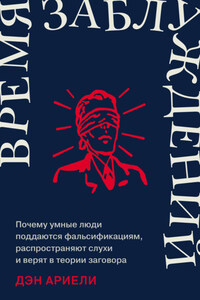HarperCollinsPublishers Ltd.
1 London Bridge Street
London SE1 9GF
www.harpercollins.co.uk
First published by HarperCollinsPublishers 2008
PREDICTABLY IRRATIONAL. Copyright © 2008 by Dan Ariely.
A catalogue record for this book is available from the British Library
All rights reserved under International and Pan-American Copyright Conventions. By payment of the required fees, you have been granted the non-exclusive, non-transferable right to access and read the text of this ebook on-screen. No part of this text may be reproduced, transmitted, down-loaded, decompiled, reverse engineered, or stored in or introduced into any information storage and retrieval system, in any form or by any means, whether electronic or mechanical, now known or hereinafter invented, without the express written permission of HarperCollins ebooks
HarperCollinsPublishers has made every reasonable effort to ensure that any picture content or written content in this ebook has been included or removed in accordance with the contractual and technological constraints in operation at the time of publication
Source ISBN: 9780007256525
Ebook Edition © MARCH 2009 ISBN: 9780007319923
Version: 2018-10-18
How an Injury Led Me to Irrationality and to the Research Described Here
I have been told by many people that I have an unusual way of looking at the world. Over the last 20 years or so of my research career, it's enabled me to have a lot of fun figuring out what really influences our decisions in daily life (as opposed to what we think, often with great confidence, influences them).
Do you know why we so often promise ourselves to diet, only to have the thought vanish when the dessert cart rolls by?
Do you know why we sometimes find ourselves excitedly buying things we don't really need?
Do you know why we still have a headache after taking a one-cent aspirin, but why that same headache vanishes when the aspirin costs 50 cents?
Do you know why people who have been asked to recall the Ten Commandments tend to be more honest (at least immediately afterward) than those who haven't? Or why honor codes actually do reduce dishonesty in the workplace?
By the end of this book, you'll know the answers to these and many other questions that have implications for your personal life, for your business life, and for the way you look at the world. Understanding the answer to the question about aspirin, for example, has implications not only for your choice of drugs, but for one of the biggest issues facing our society: the cost and effectiveness of health insurance. Understanding the impact of the Ten Commandments in curbing dishonesty might help prevent the next Enron-like fraud. And understanding the dynamics of impulsive eating has implications for every other impulsive decision in our lives – including why it's so hard to save money for a rainy day.
My goal, by the end of this book, is to help you fundamentally rethink what makes you and the people around you tick. I hope to lead you there by presenting a wide range of scientific experiments, findings, and anecdotes that are in many cases quite amusing. Once you see how systematic certain mistakes are – how we repeat them again and again – I think you will begin to learn how to avoid some of them.
But before I tell you about my curious, practical, entertaining (and in some cases even delicious) research on eating, shopping, love, money, procrastination, beer, honesty, and other areas of life, I feel it is important that I tell you about the origins of my somewhat unorthodox worldview – and therefore of this book. Tragically, my introduction to this arena started with an accident many years ago that was anything but amusing.
ON WHAT WOULD otherwise have been a normal Friday afternoon in the life of an eighteen-year-old Israeli, everything changed irreversibly in a matter of a few seconds. An explosion of a large magnesium flare, the kind used to illuminate battlefields at night, left 70 percent of my body covered with third-degree burns.
The next three years found me wrapped in bandages in a hospital and then emerging into public only occasionally, dressed in a tight synthetic suit and mask that made me look like a crooked version of Spider-Man. Without the ability to participate in the same daily activities as my friends and family, I felt partially separated from society and as a consequence started to observe the very activities that were once my daily routine as if I were an outsider. As if I had come from a different culture (or planet), I started reflecting on the goals of different behaviors, mine and those of others. For example, I started wondering why I loved one girl but not another, why my daily routine was designed to be comfortable for the physicians but not for me, why I loved going rock climbing but not studying history, why I cared so much about what other people thought of me, and mostly what it is about life that motivates people and causes us to behave as we do.
